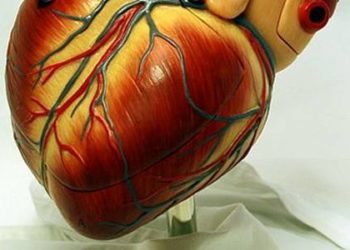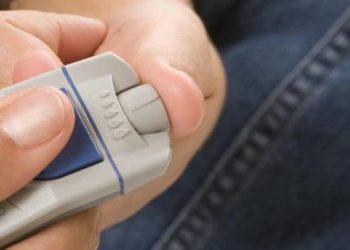2 Minute Medicine Rewind May 19 – May 26, 2014
Image: PD
In this section, we highlight the key high-impact studies, updates, and analyses published in medicine during the past week.
Recent studies have showed older antipsychotic medications to be noninferior in safety and efficacy to newer atypical antipsychotics; older medications are known to cause more extrapyramidal symptoms, however atypical antipsychotics are associated with more unfavorable metabolic effects. In this double-blind randomized trial, 311 patients with schizophrenia or schizoaffective disorder deemed at-risk for medication noncompliance were randomized to receive monthly intramuscular injections of haloperidol decanoate or paliperidone palmitate (risperidone’s active metabolite) to compare their effect on rates of efficacy failure (inadequate control of symptoms). At 24 months, the paliperidone palmitate group had similar rates of efficacy failure vs the haloperidol decanoate group (33.8% vs 32.4%, adjusted HR for time to efficacy failure 0.98, 95%CI 0.65-1.47). In secondary outcome measures, the paliperidone group experienced greater weight gain (6kg gain vs 3.8kg weight loss in the haloperidol group at 24 months, p<.001) and higher prolactin levels, while those receiving haloperidol reported more severe akathisia (p=.006) but similar degrees of abnormal involuntary movements, parkinsonism, and tardive dyskinesia. Similar to other recent analyses, this study found that long-acting injectable paliperidone palmitate, an atypical antipsychotic, had similar efficacy compared to the older-generation haloperidol decanoate.
Bariatric Surgery versus Intensive Medical Therapy for Diabetes – 3-year outcomes
During short-term follow-up, bariatric surgery has been demonstrated to effectively treat or control diabetes compared to medical therapy, however long-term effects are less well-studied. In this 3-year follow up of the STAMPEDE (Surgical Treatment and Medications Potentially Eradicate Diabetes Efficiently) randomized controlled trial, the 137 of the 150 patients randomized 1:1:1 to gastric bypass, sleeve gastrectomy, or intensive medical therapy were evaluated based on a HbA1c of <6% with or without medication (primary outcome) in addition to other health outcomes (weight loss, blood pressure, lipids, quality of life, etc). At 3 years, the surgical groups were much more likely to have satisfactory glycemic control than the medical group (5% for medical therapy vs 38% for gastric bypass (p<.001) vs 24% for sleeve gastrectomy (p=.01)). Both surgical groups also required less insulin, lost more weight, had an improved lipid panel, and less albuminuria compared to patients only undergoing medical therapy. These results are encouraging in demonstrating the longer-term efficacy of bariatric surgery in diabetes management, though the study was not powered to analyze end-organ effects of diabetes complications.
Contrast-induced acute kidney injury (AKI) is not uncommon after cardiac catheterization, yet no standard protocol exists regarding intravenous fluid administration to prevent this complication. In this randomized single-blind phase 3 trial, 396 patients with renal insufficiency and requiring cardiac catheterization at a single center were randomized to fluid management based on left ventricular end-diastolic pressure (LVEDP) or a standard 1.5ml/kg/hr of normal saline, administered from just before the procedure to 4 hours post-procedure, to study the effect on serum creatinine levels compared to baseline in the 4 days following the procedure. Patients in the LVEDP group received twice as many fluids as the control group (1727 vs 812mL, p<.001); the incidence of AKI, defined as a 25%/0.5mg/dL or more increase in creatinine, was less in the LVEDP-fluid-adjusted group compared to the control (6.7% vs 16.3%, p=.005). In addition, the LVEDP-guided group had lower overall mortality at 6 months (p=.037) and fewer cumulative major adverse events (RR .32, p=.008). Investigators in this study demonstrated that increased fluid repletion can safely prevent contrast-induced AKI in cardiac catheterization, and that LVEDP may be useful in guiding fluid administration.
The incidence of short-term complications after total hip arthroplasty, including mortality, deep vein thrombosis, infection, and dislocation, have been inversely associated with surgeon volume, though it is unclear if there is a caseload number that represents a low annual volume and higher risk of complication. In this retrospective cohort analysis of 37,881 patients in Ontario, Canada, who had received a total hip arthroplasty, researchers aimed to find an inflection point in the relationship between surgeon procedure volume (avg 55 cases/year, interquartile range 35-85) and surgical complications. The investigators suggested and compared surgeons who performed a threshold of 35 or more surgeries the previous year compared to surgeons who performed less than 35 surgeries the previous year. Patients in the group with lower case low surgeons had higher rates of dislocation (1.9% vs. 1.3%, p = 0.006) and revision (1.5% vs. 1.0%, p = 0.03). In this cohort of patients who underwent routine total hip arthroplasty, there was a higher rate of complication and revision in patients who underwent surgery by surgeons who performed less than 35 procedures the previous year.
Ultrasound has been investigated as a lower cost, higher sensitivity alternative to CT scan for the diagnosis of appendicitis. The investigators of this study sought to identify a population of patients with negative or inconclusive ultrasound results through that can be discharged early and are no risk for appendicitis. The investigators used 199 patients with negative or inconclusive ultrasound results to develop the clinical decision rule that patients with less than two of the following criteria (male sex, migration of pain to the right lower quadrant, vomiting, and elevated white blood cell) were considered low risk. Using a validation cohort of 120 patients (of which 24 (12%) had appendicitis), the decision rule identified 72 patients (of which 4 (6%) had appendicitis) for early discharge and re-evaluation. The negative predicitive value of the decision rule was 94% (vs 99% for CT scan, p = 0.14). The authors suggest this clinical decision rule can help limit the use of more expensive imaging modalities for ruling out appendicitis.
©2012-2014 2minutemedicine.com. All rights reserved. No works may be reproduced without written consent from 2minutemedicine.com. Disclaimer: We present factual information directly from peer reviewed medical journals. No post should be construed as medical advice and is not intended as such by the authors or by 2minutemedicine.com. PLEASE SEE A HEALTHCARE PROVIDER IN YOUR AREA IF YOU SEEK MEDICAL ADVICE OF ANY SORT.







